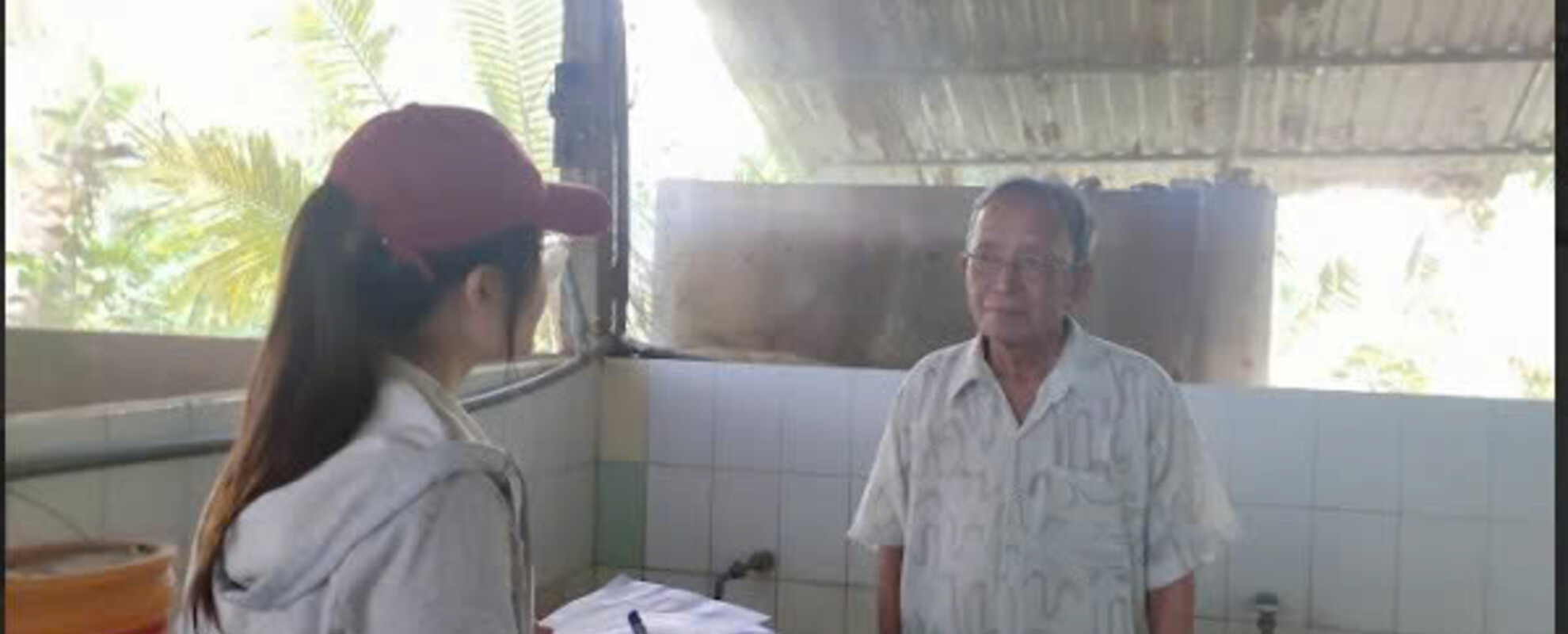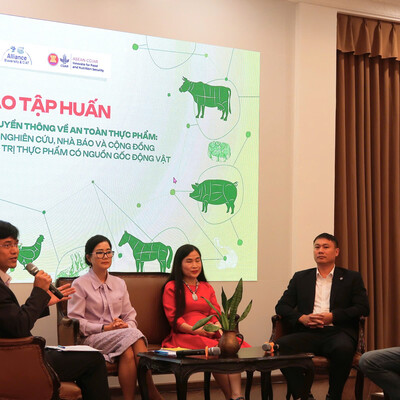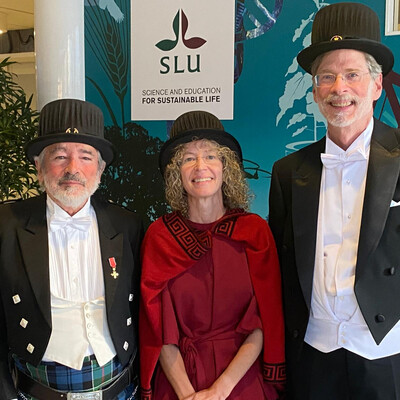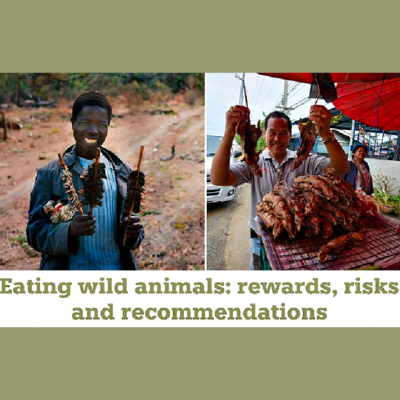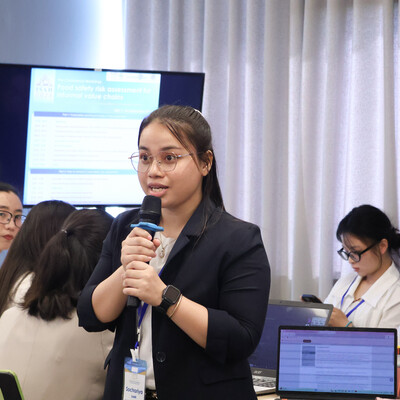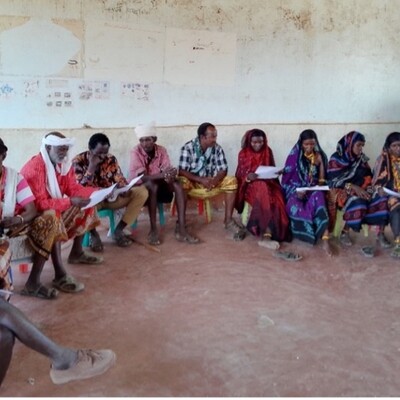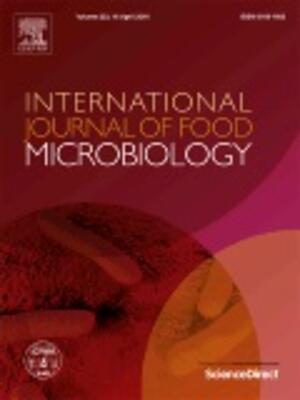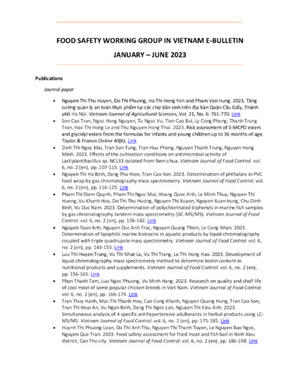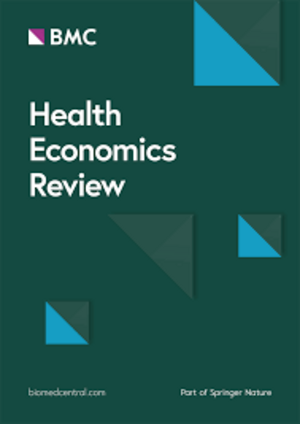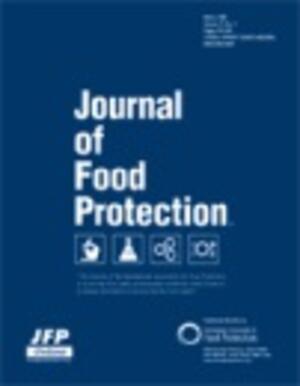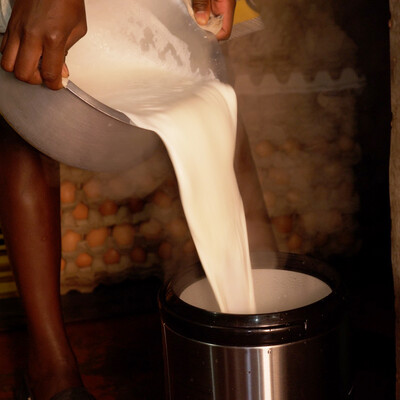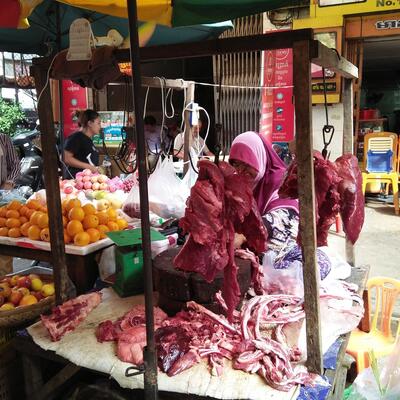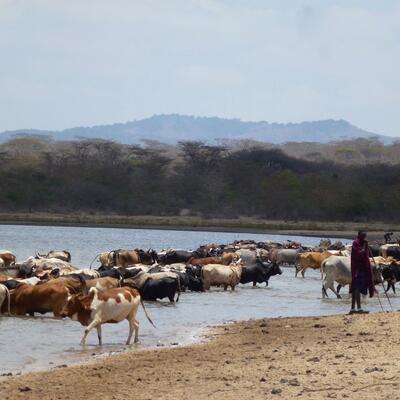
Building capacity for the next generation of One Health researchers: Insights from SEAOHUN fellows at ILRI
The Southeast Asia One Health University Network (SEAOHUN) and the International Livestock Research Institute (ILRI) have developed a strong partnership to grow young talents in the field of One Health. Through various programs, they provide hands-on experience and knowledge to emerging professionals passionate about addressing global health challenges. Recently, two SEAOHUN fellows, Quynh Ha and Linh Dang, completed three-month fellowships at ILRI’s Hanoi office. In a joint interview, they shared their motivations, challenges and reflections on how the fellowship has shaped their career aspirations.
ILRI: What motivated you to apply for the SEAOHUN fellowship with ILRI, and what were your main responsibilities during the fellowship?
Quynh Ha:
I applied for this fellowship because I wanted to contribute to the community through my knowledge of veterinary medicine. I was inspired by SEAOHUN and ILRI as their goals aligned with my aspirations. During my time at ILRI, I worked on the ICT4Health project and helped finalize the work on the SafePork project. My role involved supporting the implementation of these initiatives, which gave me practical insights into the field.
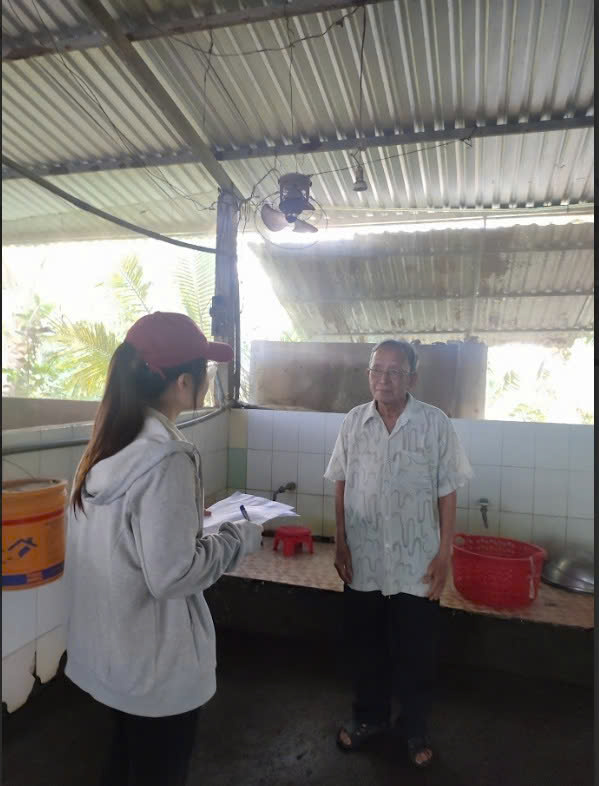
Linh Dang:
For me, the fellowship was an opportunity to gain practical research experience, particularly in applying One Health to complex animal health problems. My long-term goal is to pursue a master’s degree in public health or epidemiology, and I believed this fellowship would lay a foundation for that. I was supported the CGIAR One Health Initiative by focusing on interventions at slaughterhouses. My work included processing data, designing study tools, and engaging in field activities to promote better hygiene practices.
ILRI: Could you describe some of the key challenges you encountered and the insights you gained during your projects?
Quynh Ha:
The biggest challenge for me was learning to work effectively with different partners. As a young professional, this required experience that I was still building. However, this project improved my communication and collaboration skills. I also got to expand my network by connecting with many experienced individuals. During field visits to Hoa Binh Province, I learned how livestock farmers acquire knowledge on health and the challenges they face in managing zoonotic diseases. I understand better how important One Health is in connecting experts from different sectors to support farmers.
Linh Dang:
One of the major challenges I faced was encouraging behavior change among workers during the slaughterhouse interventions. Many were reluctant to adopt improved hygiene practices, which affected our project’s timeline. We addressed this by engaging in discussions with local communities, government agencies, and other stakeholders to build trust. My field trips to Thai Nguyen, Hanoi and Can Tho provinces also taught me valuable lessons in adaptability and the importance of effective communication. These experiences enhanced my problem-solving skills and strengthened my ability to manage complex projects.
ILRI: How did your field visits contribute to your understanding of One Health, and what were some memorable experiences?
Quynh Ha:
My trip to Hoa Binh Province was very helpful. I got to see how practical knowledge about health is shared among livestock farmers and the difficulties they face when dealing with epidemics. It was a great opportunity to learn more about the work of veterinarians and state agencies, and it highlighted how One Health can bridge gaps between farmers and experts to address these issues collaboratively.
Linh Dang:
I had similar experiences during my visits to various provinces. In places like Can Tho and Thai Nguyen provinces, I observed workers were resistant to change, but I also saw the importance of effective stakeholder engagement. These trips were challenging due to conditions like unfavorable weather, but they reinforced the need for flexibility in research projects. I also learned the value of interdisciplinary collaboration, which is essential for successful One Health initiatives.
ILRI: What did you find most rewarding during your fellowship at ILRI?
Quynh Ha:
For me, the most rewarding part was stepping out of my comfort zone. I used to work primarily in a laboratory, so being assigned new tasks at ILRI was a challenge. However, the supportive environment and my colleagues helped me overcome these difficulties. I discovered more about my abilities, strengths, and areas that needed improvement, which made me more confident when facing new challenges. It was a valuable opportunity for personal growth.
Linh Dang:
The fellowship was a significant milestone for me. I gained valuable experience by participating in various research activities within the CGIAR One Health Initiative. This exposure broadened my understanding of epidemiology and statistics, and allowed me to connect with leading scientists worldwide. I feel more equipped now to apply the One Health approach to real-world scientific research, and the network I’ve built will support my future career growth.
ILRI: How has the collaboration between ILRI and SEAOHUN impacted your professional development, and what are your future career plans?
Quynh Ha:
This collaboration has been extremely beneficial. I gained essential knowledge in epidemiology and data analysis, and also developed soft skills that would have taken much longer to learn otherwise. I’ve recently been awarded a scholarship for a PhD program in Japan, and I plan to complete my studies and continue contributing to global public health through research.
Linh Dang:
The partnership between ILRI and SEAOHUN offers a collaborative learning environment that bridges early-career professionals with experts. This experience has laid a foundation for my career and has motivated me to pursue higher education in public health. I plan to advance my studies and contribute positively to research, especially in applying the One Health approach to solve complex health problems.





